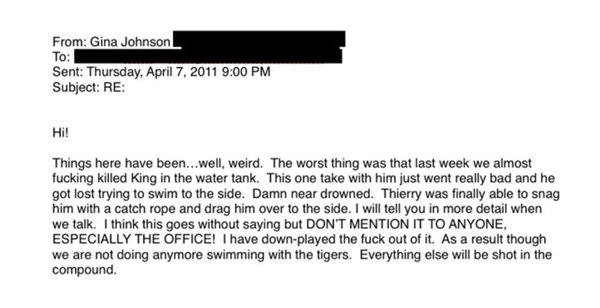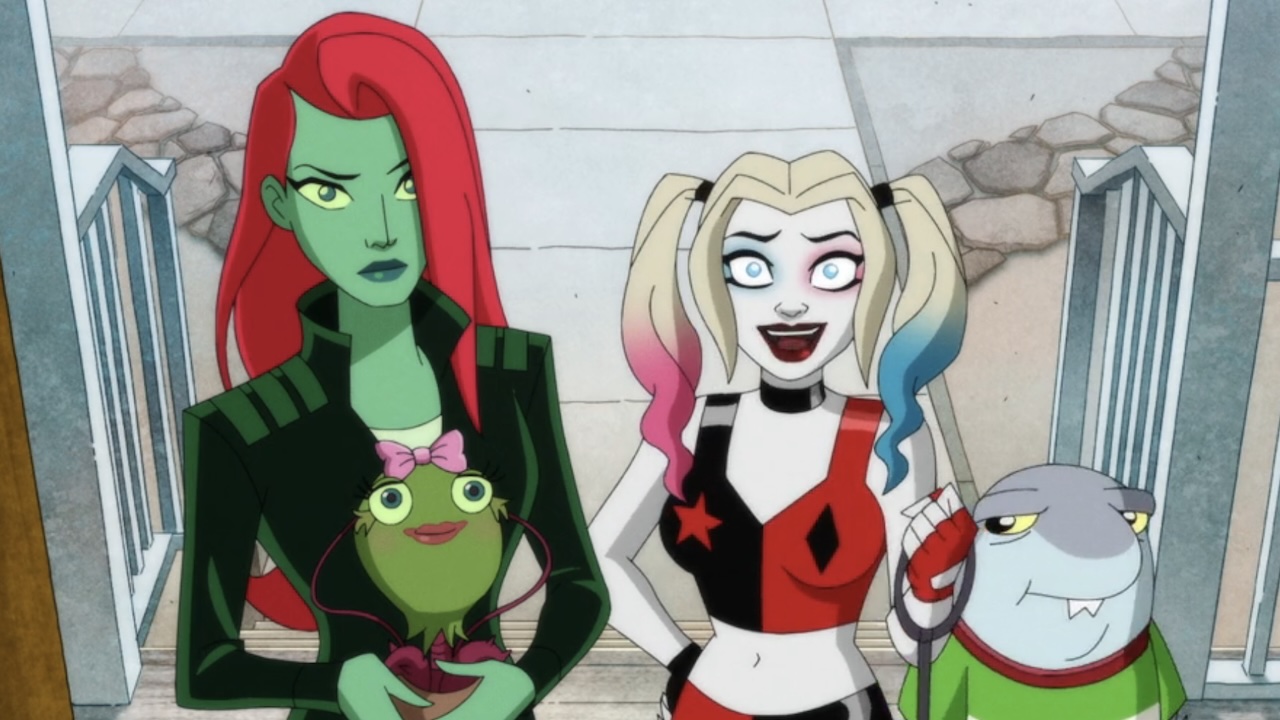Shocking Report Reveals The Truth About Animal Treatment On Movie Sets

Your Daily Blend of Entertainment News
You are now subscribed
Your newsletter sign-up was successful
Anybody who has ever stayed through the end credits of a movie and paid attention to all the logos and text up on the screen is familiar with the American Humane Association. The organization is famous for their "No Animals Were Harmed" disclaimer found at the end of films, which assures audiences everywhere that any and all animals in the production were treated with the best of care and that there was somebody always present to look out for their safety. In a shocking expose, however, The Hollywood Reporter has revealed the truth behind the situation is actually much more horrifying and filled with scandal.
In an extended feature that will be printed in the December 6th issue of the magazine, the trade has gone into extreme detail about some serious and upsetting malfeasance that has been going on behind the scenes of major blockbuster films over the last few years, resulting in many animal deaths due to carelessness and cover-ups. While all of the evidence that is uncovered is quite shocking, the most disturbing was an email sent from an American Humane Association monitor on the set of Life of Pi, who recounted a terrible incident that occurred with a tiger named King that was used in the movie when the production couldn't use a CGI double:

The Hollywood Reporter's feature is filled with inside detail that reporters gathered from "internal AHA documents, including incident logs, emails, meeting minutes, audit assessments and more," and uncovers scary stories from movies and television shows like The Hobbit (where sheep and goats died from dehydration and exhaustion), Pirates of the Caribbean: The Curse of the Black Pearl (which featured explosions that killed a great deal of marine life), and the HBO series Luck, which was completely shut down last year due to controversy surrounding the death of horses on set. Terrible as the situation is, the Hollywood Reporter feature deserves to be read in full (be warned that the article does include some shocking images).
If the situation is as bad as the report makes it out to be, then changes obviously need to be made and very soon. More than just firings - which will undoubtedly be one result of this feature - the organization needs to change as a whole in order to make sure that situations like this are never allowed to occur again. THR suggests that the AHA has "transformed itself into an entrenched industry insider," which of course means that part of the fixing process needs to include creating stricter ethical guidelines that keep AHA monitors objective and always actually looking out for the best treatment of animals on set.
Your Daily Blend of Entertainment News

Eric Eisenberg is the Assistant Managing Editor at CinemaBlend. After graduating Boston University and earning a bachelor’s degree in journalism, he took a part-time job as a staff writer for CinemaBlend, and after six months was offered the opportunity to move to Los Angeles and take on a newly created West Coast Editor position. Over a decade later, he's continuing to advance his interests and expertise. In addition to conducting filmmaker interviews and contributing to the news and feature content of the site, Eric also oversees the Movie Reviews section, writes the the weekend box office report (published Sundays), and is the site's resident Stephen King expert. He has two King-related columns.
